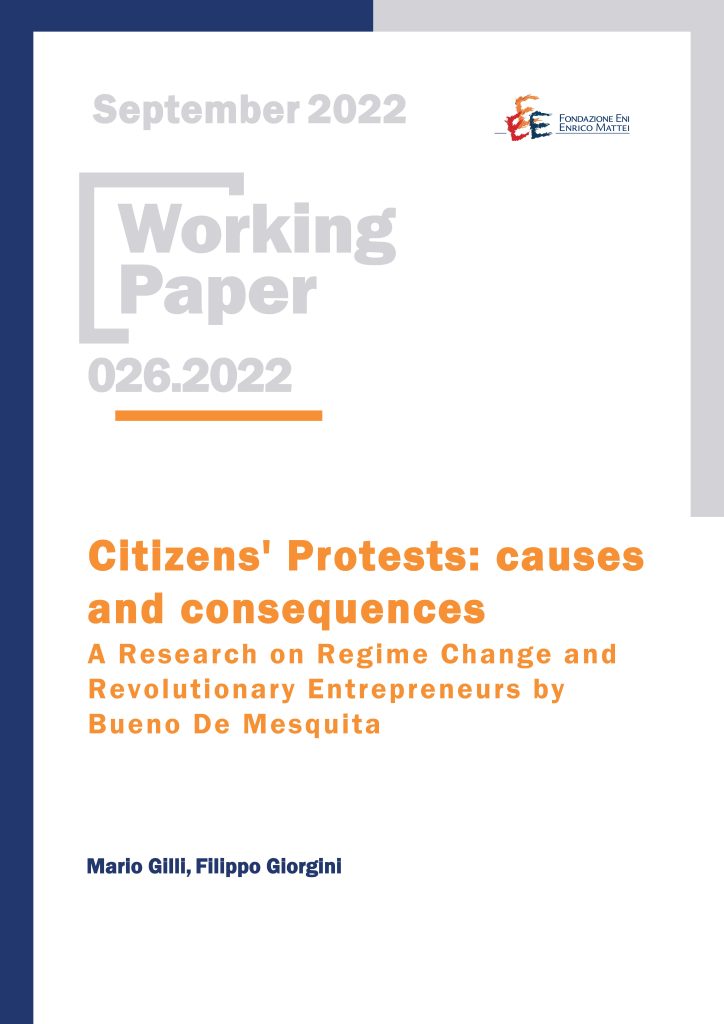Citizens’ Protests: causes and consequences. A Research on Regime Change and Revolutionary Entrepreneurs by Bueno De Mesquita

15.09.2022
Mario Gilli (Department of Economics, Management and Statistics and Center for European Studies, University of Milano-Bicocca); Filippo Giorgini (Department of Economics, Management and Statistics and Center for European Studies, University of Milano-Bicocca)
C72, D74, P48
protests, political regimes, sociopolitical variables
Citizens political participation to protests is a crucial issue for any political system, whether democratic or autocratic. Political systems have different ways of dealing with citizens’ protests, determining cost and benefit of public dissent, responding to public requests and allowing different degree of transparency in public information. Also the social characteristics of a country, such as citizens’ diversity and radicalization, matter for citizens political participation. The aim of this paper is to analyze causes and consequences of citizens’ protests, focusing on how private and public information affect citizens’ opinion and political behavior, and on how they depend on sociopolitical factors as well as on the political regime. In Regime Change and Revolutionary Entrepreneurs, Bueno de Mesquita proposed a seminal model to study why revolutionary vanguards might use violence to mobilize citizens against a regime. We claim that the model can be used more generally to investigate citizens’ protest. We refer to his model to understand citizens’ political behavior, studying the relationship between the model’s structural parameters and the causes and consequences of citizens’protests, adopting a partially different approach and extending his results.
***
Suggested citation: M. Gilli, F. Giorgini, ‘Citizens’ Protests: causes and consequences. A Research on Regime Change and Revolutionary Entrepreneurs by Bueno De Mesquita’, Nota di Lavoro 026.2022, Milano, Italy: Fondazione Eni Enrico Mattei
